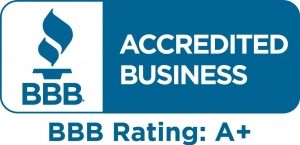By Robby Brown, BreatheWell Air
My relationship with Longevity began over 15 years ago when I was referred by a friend after I discovered we had mold in our home and learned that I am highly allergic to mold. That relationship has grown and evolved over the years and now I have the privilege of assisting many Longevity patients as they seek to improve their indoor air quality (IAQ).
Once you realize you are in the “mold club” which 1 in 4 people are prone to be, you recognize that mold lurks not only at home but also work, shopping, hotels, vacation rentals, and – even worse- relatives’ homes! That is why I am passionate about helping others navigate the broad issue of IAQ and the specific problems presented by mold.
Our goal is to advise our customers by identifying IAQ issues they face and develop and implement a plan to remedy. In implementation we take a layered approach- meaning we start with the remedies that are deemed essential and then reevaluate afterwards to determine if further action is required. Not only is this approach prudent but it enables our customers to take steps as their budget allows.
For those of us who live in the humid southeast, mold is a dominant IAQ problem. Following are a few important facts to consider when evaluating mold issues:
- Most mold we encounter is not obvious black spots on a wall (more typical of water leaks) but a more subtle, vague, grayish color which is not easily recognizable.
- The two most critical factors involved with all mold growth are:
- Controlling humidity
- Eliminating food sources for mold
- Humidity in your home must be kept below 50% to control mold growth. This includes both conditioned and unconditioned spaces like crawl space or unfinished basement.
- In most mold situations, large commercial dehumidifiers ducted into the HVAC system are required to control humidity. Typically, small portable dehumidifiers are not enough to control whole-house humidity.
- One of the most surprising but common sources of mold is found in the HVAC system. Besides poor filtration, a major issue we see frequently is plenums (or even trunk lines) made of duct board. This is a fibrous material and when cold, moist AC air is added it becomes like a petri dish and mold flourishes. The only solution is removing and replacing with sheet metal.
When assessing mold each situation is unique and often we identify problems without running a mold test. However, when a test is required we use AirAnswers- a recently developed, patented testing device which we run for 24-hours. During the test period the silent device captures over 200,000 liters of air on a steel cartridge. The cartridge is shipped to a lab for testing to determine if live, active mold is growing and then genera, and/or mycotoxins tests are available as needed. Much like the food we buy, this process puts a “nutritional label” on your air.
Last, while much of our business as well as the above information is mold related, the importance of IAQ and proper filtration is often overlooked. It is estimated that we spend 90% of our time indoors. Thus, the obvious importance of breathing healthy air which by definition is determined by the number and size particles in the air we breathe. The problem is that particles are unseen and according to the medical experts such as American Lung Association and American Heart Association, the smaller particles cause the most damage to our health.
It is very common in homes and smaller office environments to only have 1-inch filters (measuring depth). Generally, these do not filter out the smaller particles and mostly capture larger particles like dust. We use a laser particle scanner to test each environment and focus on the ultrafine particle sizes. To provide some context, the width of a human hair is about 100 microns in width. Ultrafine particle sizes we measure are 2.5 micron and 0.03 microns. These unseen tiny particles are the most dangerous as they are so small that they can enter our bloodstream and go to our heart, lungs, etc.
A valuable step in improving IAQ is to have a more significant filter cabinet installed and we recommend a 5-inch depth and use a high-grade MERV filter to make significant improvements in IAQ. This, along with high quality portable air purifiers, can make a significant impact on the quality of air you breathe and on your overall health.
In summary, IAQ is no respecter of house size or price. All houses are basic structures with HVAC systems and face the same environmental issues. But be encouraged as virtually all IAQ issues can be resolved and you can BreatheWell in your home.
Learn more at https://www.breathewellair.com/

